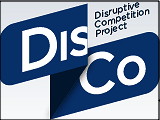[This series of posts dissects the threatened FTC antitrust case against Google and concludes that a monopolization prosecution by the federal government would be a very bad idea. We divide the topic into five parts, one policy and four legal. Check out Part I, Part II and Part III.]
To make out a monopolization case, any plaintiff, FTC or otherwise, must not only show monopoly power in a relevant market, but also that anticompetitive practices led to (obtained) or protected (maintained) that power. Antitrust lawyers dub this the “conduct” element of Section 2. It’s what differentiates lawful monopolies, earned by innovation and business skill, from unlawful acts of monopolization.
Exclusionary or anticompetitive conduct — the terms are the same — is something other than competition on the merits. A colloquial definition which basically matches the judicial one is that anticompetitive conduct is business behavior that defeats competing firms on a basis other than efficiency. Likewise, conduct that sacrifices short-run profits in order to “recoup” those relative losses with higher future prices is not rational business behavior and is thus regarded by the law as presumptively predatory, the most egregious form of anticompetitive behavior.
4. Google Has Not Engaged In Exclusionary Practices
Try as they might, the proponents of an FTC case against Google have not made a credible showing anything Google has done meets these accepted tests for exclusionary conduct. The fallacy of their critique is summed up with a Web ad running now asking whether we can “trust” Google. Neither trust nor fairness have anything to do with the antitrust laws. Monopolization is not unfair competition, it is illegal competition.
Unfairness represents a qualitative judgment that has nothing to do with current antitrust law. As the modern Supreme Court has written:
Even an act of pure malice by one business competitor against another does not, without more, state a claim under the federal antitrust laws; those laws do not create a federal law of unfair competition or “purport to afford remedies for all torts committed by or against persons engaged in interstate commerce”…. The success of any predatory scheme depends on maintaining monopoly power for long enough both to recoup the predator’s losses and to harvest some additional gain.
In sum, marketplace competition is not boxing and there are no Marquess of Queensberry Rules governing how firms must fight “fairly”. Anything goes in our market system so long as it pits product against product and is not illegal — in other words, so long as the challenged practices do not use the power of a monopoly position to drive out equally-efficient competitors.
Search “Fairness” Is Not An Antitrust Obligation. The central problem with the potential case of FTC v. Google, Inc. is that the firms pushing for a prosecution can only contend that Google’s search algorithms unfairly demote result rankings for so-called “vertical” competitors. Their theory is that Web search has an inherent standard of fairness or objectivity — which they once called “search neutrality” — that, if violated in favor of Google’s own products, represents exclusionary conduct. Recognizing that search results are inherently subjective, others now claim fairness is not the linchpin, but still assert that intentionally degrading “competing” search links is exclusionary.
Dividing this into two portions, first consider whether such practices have any effect on the ability of competitors to do business. Even if travel booking firms, for instance, compete with Google in search (there’s a solid, contrary argument that travel searches are conducted to buy products and thus do not compete with general Web search and search advertising, rather with travel agents and airline/hotel proprietary sites), there is no evidence link demotion in any way diminishes the traffic to such vertical rivals. Some of these are the same companies that forecast Google would force them out of business but now boast of traffic gains and successful IPOs. Second, consider whether there is a practical way to ferret out from Google’s constant tweaking of its algorithms which changes “demoted” quasi-search rivals. This author suspects that if the FTC had gathered smoking gun evidence that Google designed search changes specifically to screw competitors by depriving them of search-originated Web traffic, the case would be almost ready for trial now. (Note I do not concede this would constitute a Sherman Act violation, only that the atmospherics and headlines would be sexier.) Since everyone admits Google got to its present position by building a better search engine, the trade secret and IP consequences of such a monopolization theory are enforcement quicksand for the government.
Deception Without Much More Is Not Exclusionary. A colleague of mine, whose views on this topic differ, suggested in a debate recently that United States v. Microsoft Corp. offers a road map for the FTC because it shows “deception” constitutes unlawful conduct for a monopolist. Hardly. The Microsoft decision broke new legal ground in assessing when networks effects (there known as the “applications barrier to entry”) matter under Section 2. What the courts did not do, though, was sustain a Section 2 offense premised on lying to or deceiving customers, distributors or rivals. Lying may and often does violate truth-in-advertising or other consumer protection statutes; it’s just not exclusionary conduct for antitrust purposes.
Microsoft was held liable under Section 2 for deceiving Java developers that Java programs written with Microsoft’s JRE tools would be OS-indifferent. Along with the Netscape Web browser, Sun’s Java was one of two “middleware” technologies that in the mid-1990s allowed software to run without resort to Windows APIs. In reality, the Microsoft Java interface created Windows-only Java apps that would not run on any other platform, thus “polluting” the Java standard and reinforcing the built-in cycle that perpetuated the Windows desktop monopoly. No one, not even my colleague, argues that anything Google has done has tricked competitors, advertisers or search users into utilizing Google products when they thought they were creating a Google-free computing environment. It’s hard even to imagine what Google might do to accomplish such a result, especially when all the consumer data it holds (emails, bookmarks, blogs, photos, profiles, etc.) can be ported elsewhere with ease. That’s also nothing like the deception by which a patent holder can illegally elevate an invention from a cool toy to a must-have technology by lying to a standards-setting organization so its IP-protected product becomes essential for an entire industry,
Use of Monopoly Power For “Leverage” Is Not Unlawful. Google has defended its emerging practice of organizing search results around themes and answers, rather than a list of “10 blue links,” as something Yahoo!, Bing and other search engines do also. That’s not a formal legal defense because a firm with monopoly power may be restrained from competing in the same manner as other firms, especially if it involves losing money in new markets — something at which Google seems to excel.  But with the caveat that below-cost pricing can (although is rarely proven to) be predatory and thus exclusionary, a final problem with the FTC antitrust theory is that it represents a discarded notion of monopoly leveraging.
But with the caveat that below-cost pricing can (although is rarely proven to) be predatory and thus exclusionary, a final problem with the FTC antitrust theory is that it represents a discarded notion of monopoly leveraging.
Vertical rivals like Yelp and TripAdvisor do not compete with Google in search advertising, the relevant market in which Google’s share arguably reaches monopoly territory. (The 65% or so of general Web searches Google handles is only barely if at all within possible monopoly range, and not bolstered by entry barriers.) What they compete with are Google’s complementary content (e.g., Zagat and profiles) and sales (e.g., Google Checkout and anticipated travel booking service) products. In other words, the essence of the claim is that Google uses its purported power in the search/advertising market to gain a competitive advantage in a second, different market.
Pioneered by the Berkey Photo v. Kodak case of the 1970s, that leveraging theory has been overruled as a standalone Section 2 violation. Only if the competitive impact in the second market amounts to an attempt to monopolize — which requires a specific intent to monopolize and a “dangerous probability of success” — is this sort of behavior illegal. It is frankly impossible to conceive of an FTC antitrust complaint that could credibly assert there exists a dangerous probability Google will likely, let alone probably, monopolize airline bookings, restaurant reviews or (whether it takes on Amazon or anyone else) any other content on the Internet.
* * * * * * * * * * * * * * * * * * *
Some of these observations have a decidedly US-centric orientation. On monopoly leveraging, for instance, the EU operates under a different statutory regime, one outlawing “abuse” of a “dominant position,” that could as a competition law matter potentially support a leveraging complaint. But the Europeans also want to extend remedies to Google without a judicial test of their claims (which is proper procedure only across the pond) and before the market impact is known (which even for empowered Brussels regulators is questionable). Whichever standard is employed, the operative question remains whether whatever Google is charged with having done, or may do in the future, respecting its display of Web search results should be considered exclusionary conduct for antitrust purposes. For us the answer to date is a resounding “No.”
Note: Originally prepared for and reposted with permission of the Disruptive Competition Project.



[…] Why An FTC Case Against Google Is A Really Bad Idea (Part IV) […]